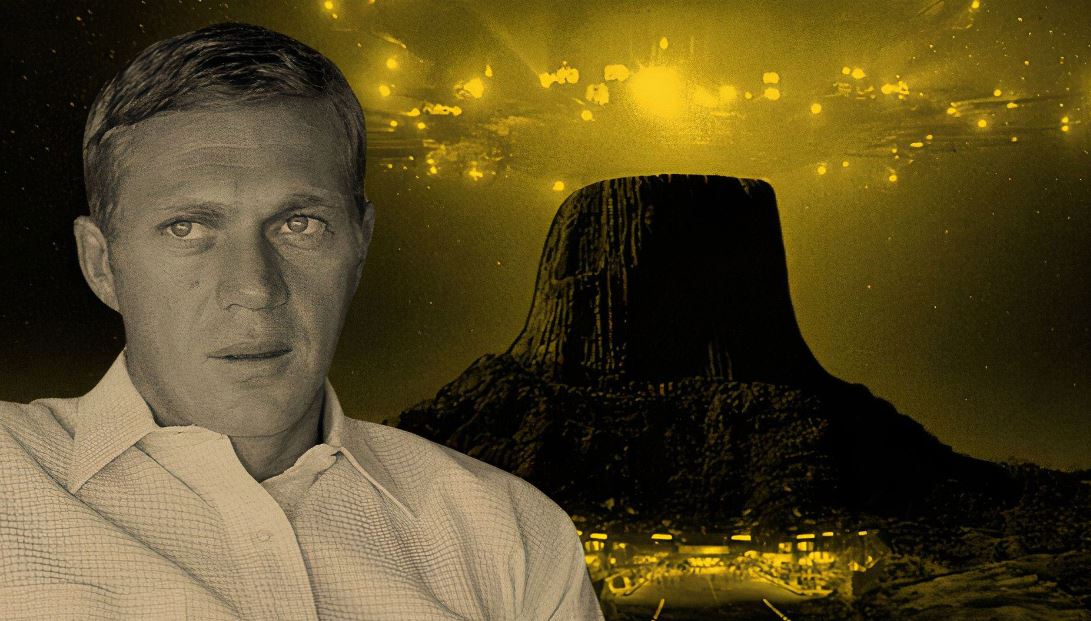Casting is one of the most crucial–and fickle–aspects of making a movie. Hiring the right performer for the right role can often elevate a film to the perfect pitch, while an error in such judgment can upset a production or necessitate the unenviable task of firing someone mid-shoot. As one of cinema’s greatest filmmakers, who has worked with some of its greatest actors and actresses, Steven Spielberg undoubtedly knows this all too well. Would Raiders of the Lost Ark be what it is if Tom Selleck had been cast as Indiana Jones instead of Harrison Ford? Would Liam Neeson have won an Academy Award for Best Actor for playing Abraham Lincoln years before Daniel Day-Lewis landed the part and won his third Oscar?
Fortunately for Spielberg, whose legendary reputation has performers champing at the bit to work with him, his access to Hollywood’s A-list has remained unimpeded for decades. After becoming a household name with Jaws in 1975, he immediately went to work on his ambitious sci-fi follow-up, Close Encounters of the Third Kind. While Richard Dreyfuss would eventually nab the leading role of Roy Neary, Spielberg, taking advantage of his newfound clout in the industry, pursued some of the industry’s biggest and most in-demand stars. Among those in consideration wasSteve McQueen, but the iconic actor ultimately turned down the film for an unusual reason.
Why Did Steve McQueen Turn Down Spielberg’s Film?

With a slew of acclaimed hits under his belt by the mid-70s, including The Great Escape, Bullitt, Papillon, and The Towering Inferno, Steve McQueen was one of the biggest and busiest stars of his or any generation. Nicknamed the “King of Cool,” his onscreen persona was matched by his real-life tough guy reputation, which was immediately apparent to Steven Spielberg when he met with McQueen at the actor’s beach house to discuss a new project. According to Spielberg, McQueen cracked open a beer for himself and slid one in front of the young, teetotaling filmmaker as the conversation shifted to Close Encounters of the Third Kind.
Initially, the meeting was presumably going exactly as Spielberg had hoped. “We sat there, and he told me how much he really liked the script,” said Spielberg, “and then he told me that he was not going to be Roy Neary.” When pressed on the issue, McQueen revealed that a moment towards the end of the screenplay, in which Neary cries, was the sticking point for the actor. “He said, ‘I don’t do that,'” recalls Spielberg, who promptly offered to remove the emotional moment from his script. McQueen, however, insisted that Neary’s crying remained because, ironically, it made him emotional when he read it. While Spielberg wouldn’t land the legendary actor of his choosing for his film, he remained undeterred and pursued other Hollywood A-listers. Meanwhile, Richard Dreyfuss had plans of his own for winning the lead role in Close Encounters of the Third Kind.
Richard Dreyfuss Lobbied For the Role of Roy Neary
After Steve McQueen slipped through his fingers, Steven Spielberg continued swinging for the fences with his casting aspirations, much to the chagrin of Richard Dreyfuss, who was intimately familiar with the filmmaker’s plans for Close Encounters of the Third Kind. “Steven told me towards the end of the shoot of Jaws what his next film was going to be about,” Dreyfuss told Vanity Fair. “I knew if I didn’t get this part, I was going to get grim.” Desperate to be cast, he would have to shamelessly promote himself as Spielberg considered some of the biggest names in Tinsel Town, among whom reportedly included Al Pacino, Dustin Hoffman, Jack Nicholson, and Gene Hackman.

Indignant, persistent, and determined to convince Spielberg that he was the right actor to play Roy Neary, Dreyfuss pulled no punches in slandering his fellow actors in the running. “I walked by Steven’s office every day and badmouthed every actor in Hollywood,” he admitted. “I said, ‘Pacino has no sense of humor. De Niro is crazy.'” Per Spielberg, efforts to court numerous A-list actors were met with flat-out dismissal or a reluctance to take the role after discussions. “It was a pretty far out idea for a movie in those days,” he told TCM. But facing one rejection after another would prove a blessing in disguise when Spielberg finally relented to Dreyfuss’s advances and cast the actor for what would be the pair’s second consecutive collaboration.
Richard Dreyfuss Brought an Innocent Childlike Quality to Roy Neary
It’s no easy task imagining anyone other than Richard Dreyfuss as Roy Neary in Spielberg’s classic, and his performance, guileless and three-dimensional, grounds and centers the film’s fantastical premise and larger-than-life spectacle. As a man who abandons his family in pursuit of an obsession he can’t quite comprehend or articulate, Neary regresses to a childlike state of innocence, awe, and wonder about his place in the cosmos. For his part, Spielberg, whose screenplay for Close Encounters of the Third Kind drew upon his fascination with outer space and the possible existence of alien lifeforms, established a strong kinship with Dreyfuss as a friend and collaborator, which paved the way for the actor serving as an onscreen vessel that would channel the filmmaker’s curiosity, desires, and emotions.
“Richard and I sort of identify with each other,” said Spielberg. “It turned out that when Richard did the film, I really recognized a kind of kindred spirit.” The duo would work together yet again more than a decade later on Always, a bittersweet fantasy love story based on the 1943 film A Guy Named Joe. Unlike that of Jaws and Always, however, their collaboration on Close Encounters of the Third Kind was deeply rooted in a mutual exploration of material that had personal resonance. With hindsight clear as day, Steve McQueen’s rejection of the role, albeit for an arguably vain reason, paved the way for one of Dreyfuss’ greatest performances in one of cinema’s most beloved sci-fi films.
